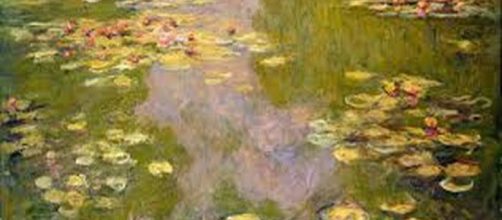He lived alone in the woods for two years and the tale he told of that exposure became a primer for living the simple, self-reliant, introspective life. In the woodland, he built a cabin by a waterway and studied its color and clarity throughout the seasons. His account, as you've probably guessed, is “Walden Pond” - Henry David Thoreau being the tree hugger.
In your dreams
But if you want the self-same experience that Thoreau exulted in, you won't find it at Walden Pond. The color and clarity that struck him with its beauty in 1854 is gone. On April 6, The Guardian reported a study showing that “pee and pesticides” have spoiled what Thoreau observed as “so transparent that the bottom can easily be discerned at the depth of 25 or 30 feet.” Analysis of the water by natural sciences professor Curt Stager of Paul Smith College in New York, reveals phosphorus in summertime, likely due to swimmers releasing their urine in the water.
The study also pointed to another action presaging destruction: footpaths to the cabin that Thoreau built has pushed large amounts of soil into it and muddied its pool. Stager concluded that people have become an unintentional force of nature so powerful that they can alter the chemistry and temperature of air and water anywhere in the world.
Exit from Paradise all over again
So there was Thoreau waxing on about how generations before him drank and admired the pond, “and still its water is green and pellucid as ever.” He even imagined its existence in the Garden of Eden when “a gentle spring rain accompanied with mist and a southerly wind, and covered with myriads of ducks and geese” served Adam and Eve with its purity.
Prophetically, though, he added this cautionary note: “If we’re not careful, this beautiful, iconic lake … could easily become more like a murky, green stew of algae.” Too late, Henry. And so it came to pass.
The art of film, poetry and painting tell the story
The demise of the pond calls to mind a 1973 sci-fi flick “Soylent Green” about a future world (2022) when the seas and earth turned foul. One old man, who has a library of old movies of the world before it went bad, reminisced about those days when water, sky and land were what Thoreau saw as Edenic. And something else, written by the poet laureate Robert Hayden, best known for his odes in the '60s, also haunt. In a poem he called “Monet's Waterlilies,” which begins, s “Today as the news from Selma and Saigon poison the air like fallout,” Hayden, like the old man nostalgic about an uncontaminated world, also turns away from it to look at images.
In the poet's case, he retreats to a series of paintings, the art of Monet, and lyricizes, “O light beheld as through refracting tears here is the aura of that world each of us has lost. Here is the shadow of its joy.” That's about where we'll end up - in the shadow – if EPA director Scott Pruitt gets his way. .


